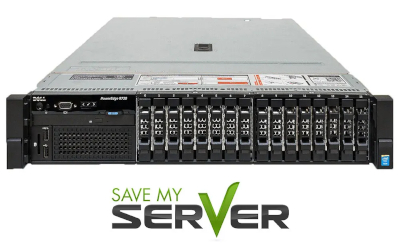| Crochet Kit Beginners Crochet Hook Set USD $17.99 | Ring Video Doorbell USD $59.99 |
| KIWI Saddle Soap, 3.125 Ounce USD $7.99 | Mueller Personal Blender USD $21.99 |
| Kitchen Utensils Set, 26 Pcs USD $24.99 | Handy Laundry Folding Step Stool USD $9.99 |
| Wireless Lavalier Microphone for iPhone Android Camera USD $29.96 | Puzcow Solar Eclipse Glasses USD $9.99 |
| Lash Clusters Overnighter 5ML Lash Sealer USD $7.99 | Aquaphor Lip Repair Ointment USD $4.76 |
| Manicure Set Nail Clippers Pedicure Kit USD $9.98 | Pro Portable Bluetooth Speaker with Custom Bass Radiator USD $17.59 |


Today, having a website is a must for businesses, bloggers, and individuals alike. While using the services of a hosting service is a popular choice, hosting your own website on your own server offers unlimited advantages. This article will guide you through a general process of hosting your own website on your own server, empowering you to take charge of your online platform.

First of all, don't be alarmed. You've probably heard horror stories from other website owners about the so-called brutal process of hosting your own website.
Most likely, these stories come from people who have thought about it, researched it, but have not yet done it. I am going to put your mind at ease right now. I started hosting all five of my websites two years ago, and let me assure you, it is NOT brutal. So take my advice, because I have not only done it, but am still doing it, and this is not going to change any time soon.

Hosting your own website means that you become your web hosting provider, eliminating the need to rely on external hosting services.
By acquiring your server, you gain full control over its configuration, security, and performance, ensuring a seamless experience for your website visitors. But how do you get started?
Don't let the picture above scare you. Hosting your own website is not intimidating at all. You only need one server to host your webite. But once you get really into this, you will get so excited that you will want to add more servers as your business grows. How do you think the tech giants got started?
There are four reasons. Before getting into them, I want to tell you why I decided to do it.
If you recall, during 2020, people were beginning to lose confidence in the social media platforms. Then, a new social media site by the name of Parler guaranteed free speech. The site was hosted by Amazon Web Services.
Well, to make a long story short, big tech apparently didn't like this. With a little encouragement, Amazon Web Services shut Parler down.
After hearing this, I was determined to have my own servers.
Now, as promised, here are the reasons for hosting your own website:

Two of the steps are first, Register a Domain Name and second, Build and Upload Your Website.
Hosting your own website is a whole new ball game, and something you would never consider if you were not familiar with the two steps just mentioned. Therefore, I am going to assume you have already performed these steps.
But keep this in mind. Your server is going to replace your Web Hosting Provider. When you set up your server, you will give it a server name which will be what you know as a user name, and of course, a password.
The normal tasks of building and upload your website will be the same. You can still use an FTP program like FileZilla. The difference is, you'll be uploading your site and your files to a different place, YOUR OWN SERVER.
There are 5 steps for setting up your server, which I will show you, right now.
I have some good news and some bad news. I'll give you the bad news first, because when you hear the good news, the bad news won't matter.
The bad news is, a server is very expensive. The cost of servers can range from as low as $5,000 to over $20,000.
The good news is, a refurbished server is just as good as a new one. I purchased my first server on eBay for $225. Since then, I have purchase four additional servers, but I purchased them directly from the Company that listed my first server on eBay. These four were the same make and model, and were less than $300 each.
I have had no problems whatsoever with these servers. They work perfectly. Following is some information about the Company from whom I purchased them.

SaveMyServer is located in Suwanee, GA. To the best of my knowledge, they ship anywhere.
They are the go-to company for businesses and organizations nationwide for refurbished servers and server parts. Dealing with them is like dealing with the factory, cutting out the middleman.
The Company is very reliable and very professional. They are very pleasant to do business with.
Research various server options, such as dedicated or virtual private servers (VPS), and select one that suits your website's needs. Consider factors like server performance, storage capacity, and bandwidth. SaveMyServer can probably accomodate any of your needs.
Basically, there are two operating systems for servers, Linux and Microsoft Windows Server.
By far, Linux is the best. Linux is the most commonly used operating system for servers. Over 96.4% of the world's top 1 million servers use Linux. And it's free and open source.
Do your research. There are almost as many types of Linux operating systems as there are operating systems.
To break this down even further, the two basic types of Linux systems are Ubuntu and Red Hat.
Red Hat Enterprise Linux (RHEL) is a commercial Linux distribution developed by Red Hat for the business market. It's also known as Red Hat Linux Advanced Server. Some of the Red Hat systems are AlmaLinux, CentOS, Rocky Linux and the one I use, Oracle Linux.
Oracle Linux has been around for a long time, and seems to be very reliable. But I can recommend any system under the Red Hat distribution.
Finally, Linux is very secure. It won't let you do anything unless you ask permission. This can be a pain, but it's worth it to have a secure website. You could always disable these functions, but I wouldn't recommend it.
You need to ensure proper configuration of firewall settings, DNS management, and other essential components to establish a secure and functional hosting environment.
This may be unchartered territory for you, but there are tons on YouTube channels that will show you how to do this. Or, if you have a question, send me a message, and I'll be happy to answer it for you.
If you use the Linux operatiing system, you really don't have to do this. All of the software you need is automatically installed on the server. All you have to do is activate it and configure it.
For your web server, the server has Apache. For email, it has a program called Postfix. BIND (Berkeley Internet Name Domain) is a free, open-source software that implements the Domain Name System (DNS) protocol. This also is installed on most Linux systems.
Enhance your website's security by implementing SSL certificates. This is probably the easiest thing to do. A few simple commands, and you will have your certificates.
The Company that distributes the SSL certificates is Let's Encrypt.
Finally, back up your website every time there is a change to protect against data loss.

If you decide to host your own website, your will feel like you are entering another world. Your life will never be the same again.
The money I spent on the servers I have is the best money I've ever spent in my life.
The information I have given you in this article is general. However, hosting your own website might require technical knowledge and expertise. You will have a lot of questions. But you can find answers to any questions you might have because they are on the internet. You just have to find them.
If you have any questions after reading this article, please send me a message. I will be happy to answer them for you.
I hope this article has helped you.
AND:
Remember! At CharlesMoney, we are here to help you succeed.